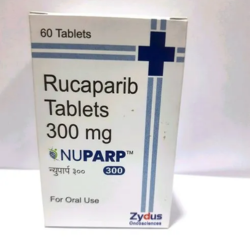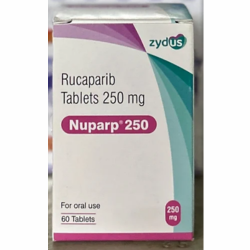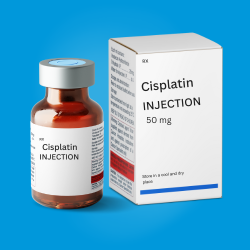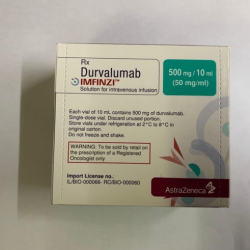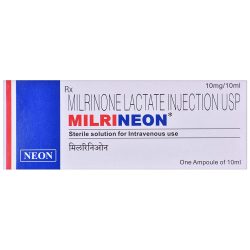Description
Uses of Rucaparib Medicine:
Rucaparib 300 mg/250 mg/200 mg tablets, supplied under the generic brand Nuparp is an anti-cancer drug classified as a PARP (poly ADP-ribose polymerase) inhibitor. It is prescribed to help sustain the effects of prior treatments for certain cancers, including ovarian cancer, fallopian tube cancer (cancer affecting the tubes that carry eggs from the ovaries to the uterus), and primary peritoneal cancer (cancer in the tissue lining the abdomen). Rucaparib 300 mg/250 mg/200 mg is specifically used in adults whose cancer has returned and who have fully or partially responded to earlier chemotherapy.
Additionally, Rucaparib is indicated for patients with specific BRCA gene mutations who have already undergone at least two previous chemotherapy regimens. It is also used as maintenance therapy after chemotherapy when the tumor has shrunk, helping to extend the benefits of the treatment.
Dosage & Side Effects of Rucaparib tablets:
The standard dosage of Rucaparib tablets is 600 mg, taken as two 300 mg tablets by mouth twice a day, totaling a daily dose of 1,200 mg. Treatment should be continued until there are signs of disease progression or side effects that cannot be tolerated.
If a dose is missed, patients should take their next scheduled dose as usual without doubling up. If a dose is vomited, it should not be replaced. For patients using Rucaparib to treat metastatic castration-resistant prostate cancer (mCRPC), a concurrent gonadotropin-releasing hormone (GnRH) analog is recommended, or they should have previously undergone a bilateral orchiectomy.
The most commonly reported side effects of Rucaparib 300 mg, 250 mg, and 200 mg tablets among patients with ovarian cancer are nausea, fatigue (including asthenia), anemia, vomiting, diarrhea, decreased appetite, thrombocytopenia, dysgeusia, neutropenia, blood creatinine increased, dyspnea, dyspepsia, dizziness, photosensitivity reaction, and leukopenia.
The most commonly reported side effects among patients with BRCAmutated mCRPC are rash, ALT/AST increased, decreased appetite, fatigue (including asthenia), nausea, anemia, constipation, vomiting, thrombocytopenia, and diarrhea.

